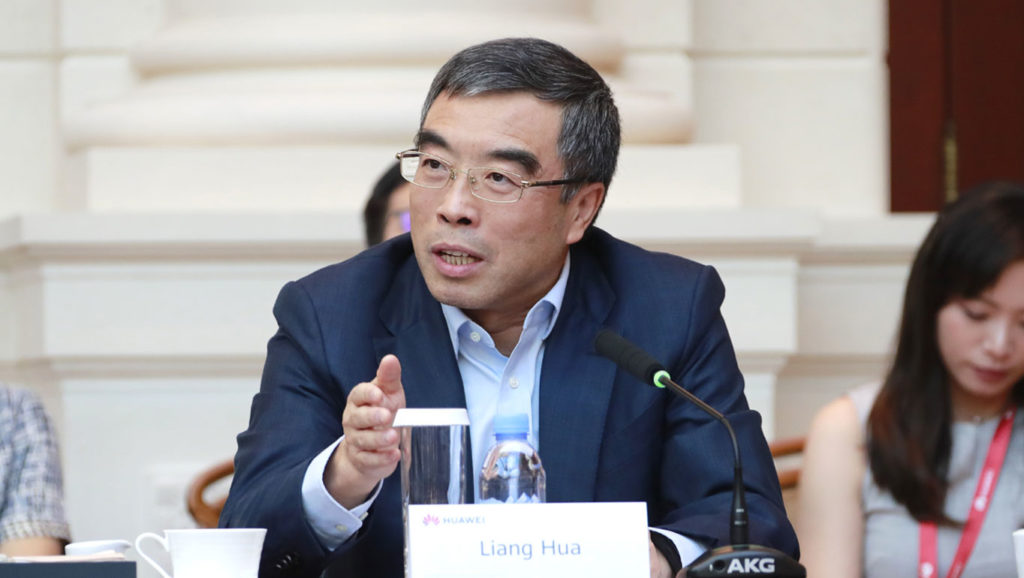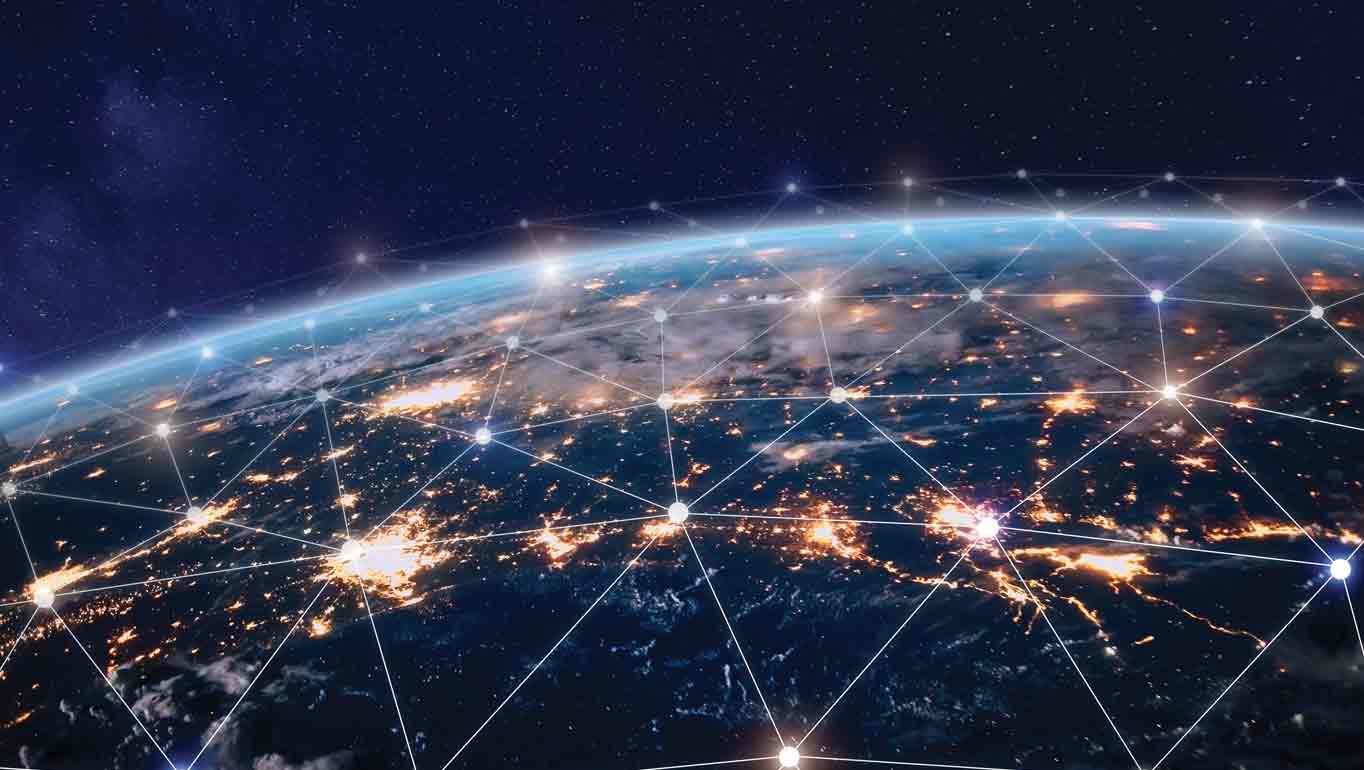The 17th May marks the anniversary of the founding of ITU in 1865, when the first International Telegraph Convention was signed in Paris. Since then, not only the concept of telecommunication itself, but also the impact of doing more, more frequently, has created a compounding effect. So, is sustainable telecom now the new paradigm?
Last year, Huawei received the United Nations Global Compact Best Practice Award for its contribution to sustainable development. What led to this recognition?
I think it’s our approach to technology and innovation. Innovation plays a huge role in building a sustainable world. As technology advances, it can make people’s lives better, drive social progress, and help create economic prosperity. When used in the right way, it’s key to addressing social development issues and improving human, social, and environmental well-being.
The United Nations’ Sustainable Development Goals are designed to promote economic growth, environmental protection, and social inclusion through the use of innovative technology, and for the benefit of all of humanity.
That’s where we come in. Huawei is a tech company that operates globally. Our vision is to bring digital to every person, home and organization, for a fully connected, intelligent world. Through ongoing innovation, our goal is to help all industries reduce their carbon footprint, protect the environment, and further promote sustainability.

Is Huawei willing to share its sustainability strategies with its counterparts in the ICT industry or other global companies?
Absolutely. We firmly believe in the power of open collaboration and shared success. All companies have their limits, no matter how big or innovative they are. For innovation and sustainable development to work, it takes a concerted effort across the entire industry – ideally, across society as a whole.
We’ve been publishing annual sustainability reports since 2008, where we go into detail about our sustainability performance. The transparency is important to us because it prompts dialogue, which leads to greater awareness and engagement on sustainability issues both in and beyond our industry.
Internally, we’ve got quite a few measures in place to interweave sustainability into all aspects of the business. For one, we’ve developed four corporate sustainability strategies, which focus on digital inclusion, security and trustworthiness, environmental protection, and cultivating a healthy and harmonious ecosystem.
On the implementation side, we have a systematic management system at the group level, which includes a Corporate Sustainable Development Committee that’s responsible for guiding practical execution of these strategies on the ground. The Committee directly reports to Huawei’s Board of Directors, and it works with all business departments to set individual goals for environmental protection and drive measurable progress towards those goals.
How do you understand the role of innovation and how can ICT technologies contribute to sustainable development, energy conservation, and emissions reduction?
Innovation plays a monumental role in driving progress. Time and time again, technology has changed the world around us. It’s been behind every major step in human history, whether it’s the transition from hand tools to machines, or from steam engines to computers.
Today, digital and intelligent technologies have become the primary driving forces behind socioeconomic development. In this sense, we believe that technological innovation is key to addressing development issues, driving social progress, and improving human, social, and environmental well-being.
As for sustainable development, green and low-carbon development has become a globally recognized mission. We firmly believe that ICT is an effective tool to fight climate change, protect the environment, and make growth a greener undertaking. Digitalization and decarbonization can work hand-in-hand, propelling and reinforcing each other to help build a greener world. That’s a major focus of our innovation. Huawei wants to help advance the green and low-carbon agendas of our customers and society at large. We’re doing this along three different tracks.
First, we are working to reduce the carbon footprint and promote the green development of the whole ICT industry. We’ve been working hard to develop technologies that make ICT products more energy efficient. We’re also working with global carriers to build more simplified, green, and intelligent ICT infrastructure. By the end of 2022, we have helped carriers in more than 100 countries and regions deploy green mobile site solutions.
Secondly, we’re enabling other industries to upgrade and achieve green development with ICT. In Switzerland, for example, we are using digital technology to support precision weed management on farms. This has cut herbicide use by 90%, reducing their environmental impact. In China, our smart heating solutions enable on-demand heating, which reduces average energy consumption by 10% in the Daowai District of Harbin, a city in northeast China.
Thirdly, we’re looking for new ways to integrate digital, power electronics, energy storage, and heat technologies to help all industries conserve energy and cut emissions – we call it ‘using bits to manage watts.’
Could you please introduce Huawei’s strategies and initiatives in technological innovation?
Innovation and R&D require long-term investment. Our strategy isn’t a short-term approach based on quarterly performance. We look and plan far ahead, and invest in long-term breakthroughs. For example, we began researching 5G back in 2009 when the world was only just beginning to deploy 4G. It’s a long-term strategy.
Even when Huawei was still a small company, we had a rule to invest at least 10% of annual revenue back into R&D. In all high-tech industries, R&D is paramount. It’s how you keep up with industry trends and maintain your competitive edge.
Long-term, concentrated investment in innovation has been the foundation of Huawei’s survival and development. As our business continues to grow and the external environment keeps changing, we have to increase our R&D investment to drive innovation in new business domains.
Over the past two years, we have re-invested more than 20% of our annual revenue into R&D. In 2022 alone, we spent CNY160.5 billion on R&D, bringing our total R&D investment over the past decade to more than CNY976.3 billion.
When it comes to innovation, we encourage bold exploration, which means we have a high tolerance for failure. If something doesn’t pan out, you have the opportunity to figure out why and then try something else. In a way, we encourage our research and product development teams to fail. It’s what leads to new directions.
Basic research is also extremely important. Math is the basis of scientific theory and a key pillar of future development. A few years back, we collected and proposed ten core mathematical challenges to the scientific community. They represent key bottlenecks in the future development of digital technology. Through efforts like this, we want to promote theoretical research and breakthroughs, and jointly figure out how to use fewer resources – like computing and storage resources – to deliver a better performance.
To make this happen, we are working more closely than ever with universities and research institutes around the world to explore basic theories. This will help light the way forward not just for Huawei, but also for our industry and society as a whole.
What is your outlook for future technology development?
Looking back at the historical development of science and technology, energy was the driving force in the 19th century, and information was center stage in the 20th. Now in the 21st century, we need more energy than ever before, especially green energy, and we use far more information, especially real-time information. We need to focus on how to transmit, process, and store more information with less energy. So now, digital and intelligent technologies are the key drivers.
Climate change has become a huge roadblock for long-term development and well-being, so green and energy-saving solutions have become a critical area for new innovation. We need to develop greener solutions to help industries conserve energy, cut emissions, and move towards a more circular economy. Technology will help us protect nature and biodiversity, and fight climate change.
Moving forward, we are bound to enter a fully connected, intelligent world. The digital economy will be growing faster, innovating more, and influencing more than any other segments of the economy. Huawei will continue to invest heavily in innovation, taking it to the next level, and creating new value for both industries and society. Ultimately, we will bring digital to every person, home and organization for a fully connected, intelligent world.



